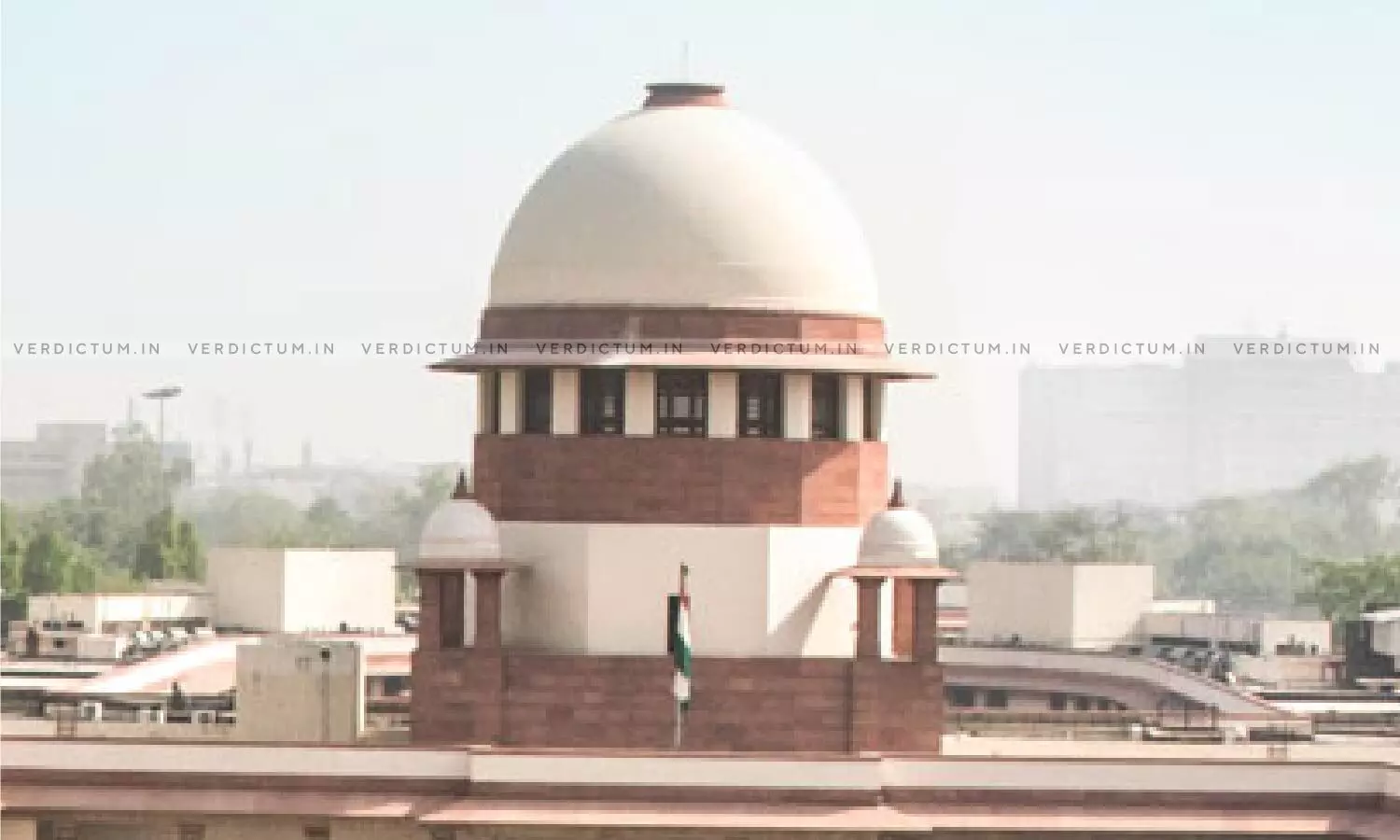
SC Directs Each High Court To Appoint Retired District Judges As Nodal Officer; Issues Directions For Implementation Of Second National Judicial Pay Commission
 |
|The Supreme Court directed the High Courts as well as the State Governments who did not frame the Rules in conformity with the directions issued by this Court, to do the same within three months.
The Supreme Court has directed each High Court to appoint a retired District Judge as a Nodal Officer, while issuing directions for the implementation of the Second National Judicial Pay Commission (SNJPC) recommendations.
The Court, its Judgment dated January 4, 2024, had issued directions with regard to the constitution of a committee in each High Court known as the Committee for Service Conditions of the District Judiciary (Committee).
However, it was submitted before the Court that in many High Courts/States the said Committee had not been constituted. Amicus Curiae K. Parameshwar submitted that in various High Courts/States though this Committee had been constituted, the same was not meeting regularly. It was further submitted that in some of the High Courts/States even the Nodal Officers, who were to look after the day-to-day individual grievances of the judicial officers, were also not appointed.
A Bench of Justice BR Gavai, Justice Augustine George Masih and Justice K Vinod Chandran directed “The Nodal Officer, who is required to be a retired District Judge and who is required to work for the day-to-day redressal of the grievances shall also be appointed within a period of four weeks from today.”
Background of the Case
On May 19, 2023, the Supreme Court had directed that:
- The percentage of District Judges (Selection Grade) should be increased from 25% to 35% of the cadre strength.
- The percentage of District Judges (Super-Time Scale) should be increased from 10% to 15% of the cadre strength, with effect from January 1, 2020.
An application was filed stating that despite the Court’s Orders, the benefits of selection grade and super-time scale had not been granted to eligible officers.
Supreme Court’s Observations
The Court referred to its Judgment dated January 4, 2024, which provided for the constitution of a Committee for Service Conditions of the District Judiciary (CSCDJ) in each High Court. The CSCDJ’s responsibilities included:
- Overseeing the implementation of SNJPC recommendations related to pay, allowances, and pension.
- Acting as a nodal agency to address grievances of judicial officers.
- .Institutionalising the mechanism for enforcement and implementation for processing claims and ensuring disbursal of financial benefits.
Further, the Court had also directed, “A retired judicial officer in the cadre of District Judge to be nominated by the Chief Justice who shall act as a nodal officer for the day to day redressal of grievances.”
Supreme Court’s Directions:
The Court noted that if the implementation of the directions issued by the Court vide judgment January 4, 2024 were complied with in letter and spirit, many of the issues would get resolved at the Committee level.
“The said judgment/order takes care of various aspects, including framing of the timelines for payment and disbursal of the claims and allowances as approved by this Court…We, therefore, request all the High Courts/States to implement the aforesaid directions as are found in judgment/order dated 04.01.2024 reproduced hereinabove,” it Ordered.
The Bench directed:
- “It is further directed that the High Courts shall provide an office place to such a Nodal Officer in the premises of the High Court(s) wherein the Judicial Officer can meet such a Nodal Officer for submitting their grievances.
- It is further directed that since the said Nodal Officer would be working almost on a regular basis, he shall be paid a monthly remuneration.
- We further direct that wherever any High Court has more than one permanent Benches, in addition to the principal seat, the Nodal Officer shall also receive and hear grievances of the Judicial Officers residing within the territorial jurisdiction of those Benches and place the same before the Committee.
- The Nodal Officer concerned shall also be entitled for the TA/DA for travelling to the Benches, which shall be paid by the State Governments concerned.
- Since the grievances of the Judicial Officers are not perennial in nature, once all the grievances with regard to implementation are addressed, the Committee would stop functioning so also the Nodal Officers.”
Accordingly, the Supreme Court directed, “The Registrar General of the High Court shall communicate the outcome of the proceedings of the committee to this Court within a period of eight weeks from today.”
Cause Title: All India Judges Association v. Union Of India & Ors. (Writ Petition(s)(Civil) No(s). 643/2015)
Appearance:
Solicitor General Tushar Mehta; Advocate General R. Venkatramani; Additional Solicitor General K.M. Nataraj; Deputy Advocate General Kartikeya Rastogi, Kuldeep Parihar; Additional Advocate General Hemant Gupta, B.K. Satija, Nishanth Patil, Nachiketa Joshi, Shiv Mangal Sharma, Amit Anand Tiwari; Senior Advocates K. Parameshwar, S. Nagamuthu, Gourab Banerji, Sunil Kumar, Swarupama Chaturvedi, Wasim Quadri, Apoorv Kurup, Jaideep Gupta, S.P. Chaly, Lenin Singh Hijam, Amit Kumar, B.K. Sharma, Dama Seshadri Naidu, Dr. Anindita Pujari, V. Chitambaresh; AOR M.P. Parthiban, Mayuri Raghuvanshi, Deepak Prakash, Gopal Jha, V.N. Raghupathy, Mahesh Thakur, Arvind Kumar Sharma, Asmita Singh, Preetika Dwivedi, Deepayan Mandal, Raj Bahadur Yadav, Gagan Gupta, Ramesh Babu M.R., Amrish Kumar, Sudarshan Lamba, Sandeep Sudhakar Deshmukh, et al; Advocates Kanti, Shreenivas Patil, Chitransha Singh Sikarwar, M.V. Mukunda, Raji Guraj, Bilal Mansoor, Shreyas Kaushal, S. Geyolin Selvam, Alagiri K, P.V.K. Deivendran, Vyom Raghuvanshi, Akanksha Rathore, Kinjal Sharma, Venkata Supreeth, Joydip Roy, Vibhav Chaturvedi, Ranvijay Singh Chandel, Geetanjali Bedi, Vipasha Singh, et al